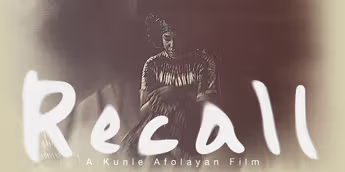The Foo Fighters have publicly expressed their disapproval after former President Donald Trump used their song “My Hero” during a campaign event. The event, held in Arizona, featured Robert F. Kennedy Jr. walking onto the stage as the song played.
Kennedy, who had recently suspended his independent presidential campaign to support Trump in certain states, appeared shortly after Trump introduced him. When asked on social media if they had granted permission for the song’s use, the Foo Fighters’ official Twitter account replied with a simple “No,” and further clarified their stance by reposting the comment with the caption “let us be clear.”
The band’s spokesperson reiterated that the Foo Fighters had not been asked for permission to use the song and that they would not have granted it if they had been. This incident places the Foo Fighters among a growing list of musicians who have spoken out against Trump’s unauthorized use of their music for political purposes.
The band’s reaction is part of a broader trend where artists are increasingly vigilant in protecting the use of their work, especially in the politically charged environment of U.S. elections.
One of the most prominent names on this list is Celine Dion, who condemned Trump for using her iconic song “My Heart Will Go On” during a campaign rally.
Dion’s management team released a statement on behalf of the singer and her record label, emphasizing that the use of the song was “in no way” authorized.
The statement underscored the artist’s disapproval of her music being associated with Trump’s political activities.
Similarly, Johnny Marr, guitarist for The Smiths, expressed his outrage earlier this year when Trump’s campaign played the band’s hit “Please, Please, Please, Let Me Get What I Want” at a rally.
Marr’s response was swift and direct, as he took to social media to express his disbelief and demand that the unauthorized use of the song be stopped immediately.
The late Tom Petty’s family also took a stand against Trump’s use of his music. In 2020, they issued a cease and desist notice after his song “I Won’t Back Down” was played at a rally in Oklahoma.
The Petty family’s statement emphasized that the song was intended to be a message of resilience for “the common man,” and they did not want it associated with a “campaign of hate.”
The Rolling Stones, another iconic band, threatened to sue Trump in 2020 after he used their song “You Can’t Always Get What You Want” at a rally in Tulsa, Oklahoma.
The band had been sending cease and desist notices to Trump’s campaign team since 2016, demonstrating their long-standing opposition to the unauthorized use of their music.
Other artists, including Neil Young, Linkin Park, and Black Sabbath, have also taken legal action or issued warnings to Trump regarding the use of their music. Neil Young attempted to sue Trump’s re-election campaign for copyright infringement in 2020, although his lawsuit was later dismissed.
Linkin Park issued a cease-and-desist order after their song “In The End” was used in a video supporting Trump, while Black Sabbath’s Ozzy Osbourne and his wife Sharon sent a notice banning Trump from using their music in 2019 after he used the song “Crazy Train” without permission.
These incidents highlight the growing tension between artists and political figures who use their work without consent. Musicians like Aerosmith, Prince, and Rihanna have all had to take similar actions to protect their music.
Aerosmith’s Steven Tyler sent multiple cease-and-desist letters to Trump in 2015 and 2018, while Prince’s estate and Rihanna issued strong statements against the unauthorized use of their songs at Trump rallies.
The increasing frequency of these disputes reflects the broader cultural and political divides in the United States, with artists keen to ensure that their work is not co-opted for political purposes they do not support.










